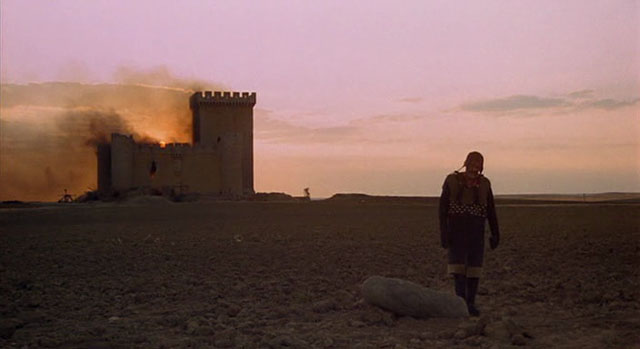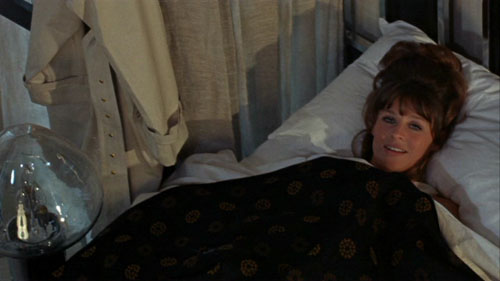Watched for Shadowplay’s Film Club, where you can find an excellent summary and valuable comments by regular readers, plus less-valuable comments by myself.

A step down from Disney’s recent Robin Hood in Roger Miller music contributions and in novelty voice characterizations, but two steps up in every other respect. I think David didn’t want to set expectations too high for this one, so I was prepared for a middling semi-romance with clunky action bits, but the action was clunky on purpose (Robin’s not a young lad anymore), the romance is fully there, and I felt the whole thing came together beautifully.

Sets its tone in the first scene: aging, disillusionment, violence (King Richard has turned murderous tyrant), with a hint of the supernatural (a blind man throws an arrow from far too great a distance straight into Richard’s neck). Prince John (now King, and played by Ian Holm in his only scene) and the Sheriff (played by Robert Shaw and his scary eyes, one of his last films) are still in charge. Marian (Audrey Hepburn’s return from retirement) has become a nun. Friar Tuck (TV star Ronnie Barker), Will Scarlett (Denholm Elliott of Brimstone and Treacle) and Little John (Nicol Williamson, later Merlin in Excalibur) happily follow Robin’s renewed, somewhat obligatory-seeming, fight against the sheriff and eager new deputy Ranulf (Kenneth Haigh in cool leafy armor).

Sean Connery (right between James Bond and Time Bandits) and Richard “Dumbledore” Harris as King Richard are both excellent in scary, unpredictable ways. Whenever I thought the movie might drag, whether the final battle-of-champions evoked The Postman/Gladiator-type cheesefests or the plot seemed headed towards a Prince of Thieves action spectacle, it’d either take a left turn or just cruise through on charm, throwing out hints of humor when necessary. Whole movie is a treat, really, with one of the most moving endings I’ve seen in a while.

I like how the end credits disclaimed that “some of the characters and incidents portrayed and some of the names used herein are fictitious”… not really any kind of disclaimer at all.













